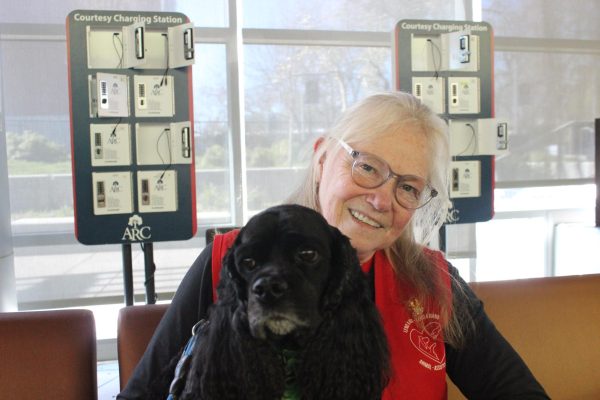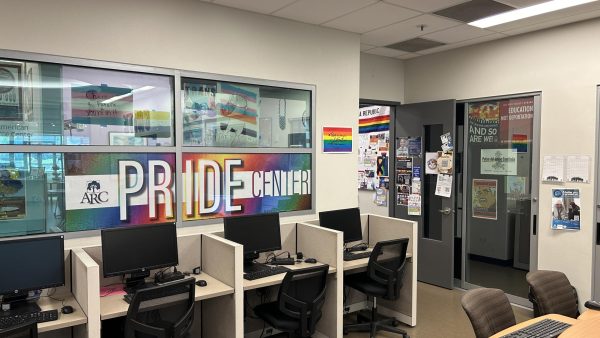After three semesters online, ARC students and faculty await a safe return to campus
“I’ve been in online college more than in-person college already.”
The third semester of online distance learning is here and the experiences still remain different for everyone, in Spring 2021. (Photo via Unsplash)
With the one-year mark of American River College online-only instruction approaching, many teachers and students say they have had similar experiences of feeling uneasy in the beginning of the transition to remote learning but are gradually becoming more used to online education.
Both teachers and students didn’t anticipate ARC shifting all of its classes online as a measure to fight the spread of the coronavirus. The Los Rios Community College District’s announcement that it was moving all of its college’s classes online last March caught many off guard because it happened suddenly, giving few, little time to adapt to the online format.
“The first distanced semester…we were literally thrown into it overnight,” ARC theater professor Richard Hellesen said in an email to the Current. “I remember one of my in-class students asking me [before the shutdown], do you think we’re going to shut down? And I said, I don’t think so, at least not for long. That was the last day I set foot in a classroom… So we all had to scramble.”
Students had the option to still choose whether or not they wanted to learn in class or online even before COVID-19.
“Prior to the pandemic, online teaching was being promoted as the big wave of the future and how great it would be to have the flexibility of distance learning,” Hellesen said. “That flexibility for students that I mentioned–although, there’s a potential con there too, in that, if you physically go to class every week, I’m there to prod you.”
Many students at ARC have had mixed experiences with online learning from the beginning of transitioning online to now. Some students say they still prefer in-person classes, some now prefer online, and some don’t mind it either way.
ARC horticulture major Damaris Ispache says that she has gotten used to online learning, but is not used to it as she still prefers an in-class learning experience.
“For me, it is much easier to learn in-person classes,” Ispache said. “I really miss those connections with my peers and the community that comes with being on campus.”
ARC nursing major Andrea Vang says that she prefers online education because it works well for her personal life, but she also misses experiences that she can get in on-campus classes.
“I work better online because I’m able to balance it more efficiently with work and my personal life,” Vang said. “However, I do miss being able to get to see the professor and hear their stories. With online school, it’s strictly business.”
Some topics that require in-person experiences have been a bit challenging to navigate online. Ispache says that she learns better in person.
“My major usually is pretty hands-on; unfortunately as much as the professors try, it doesn’t translate the same,” Ispache said. “But it’s been an OK experience since I have the opportunity to be at home and in charge of my own time.”
Hellesen says that he prefers to teach in person and looks forward to no more zoom when COVID-19 is over.
“I’m very in-person as an instructor—not everybody likes it; I feed off of it, there’s an energy that simply can’t exist online,” Hellesen said. “I’m very aware of who’s mentally present, who’s distracted, who’s checked out, but that allows me to address it directly. I can’t do that online.”
One issue many instructors say they face with online learning is not knowing whether or not students are cheating on exams. This issue especially is harder to face in online classes as instructors are not able to see on the other side of the screen.
“There’s nothing you can do to prevent students from looking at notes without going into all those tyrannical programs that lock them out of their desktop or put a camera on them or whatever, which I absolutely won’t do,” Hellesen said. “I know students won’t like to hear this, but I have to assume cheating in the traditional sense of looking at notes is the default.”
Hellesen has taken a different approach when it comes to addressing online assessments for students and the possibility of cheating. He says he tries to make his exams more thought-provoking for students.
“One way is to change the exams so that they’re not so much about ‘give me information that’s right or wrong,’ as they are about ‘take what you’ve learned and apply it to something I’m going to ask you, so I can see if you understand it,’” Hellesen said.
Ispache says there is an issue of not being able to ask questions in real-time when it comes to online learning but has found alternatives that substitute the lack of communication.
“Letting us ask questions on a discussion board has been very helpful because of the communication we have with both the class and with our professor,” Ispache said.
Hellesen says he, among other instructors, are aware that these are not normal times and does his best to accommodate students’ struggles with online learning.
“You just have to take it person by person and remember that the instructors are supposed to serve the students, not the other way around,” Hellesen said. “Students have to be willing to ask for what they need; it’s amazing what can be worked out cooperatively.”
Vang says that she is unsure of how comfortable she will be with going back to in-person classes on campus if COVID-19 gets better as she has gotten used to online education thus far.
“When coronavirus is over, I feel like it’ll be a little difficult to get back into my in-person school schedule because online school really helps balance my work and personal life,” Vang said. “I will honestly feel out of place a little because I’ve been in online college more than in-person college already.”













